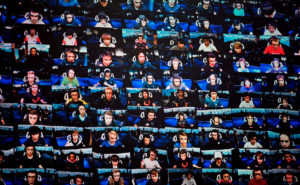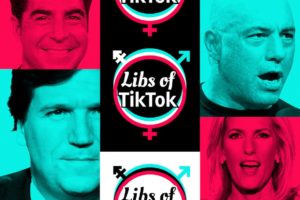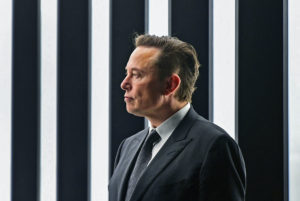Elon Musk’s purchase of Twitter is a litmus test of where you stand in the online ecosystem. To some, it means a dawn of “free speech” on a platform that has increasingly cracked down on unwanted views. To others, it means the takeover of a valuable public forum by a capricious and unaccountable oligarch.
Triumphalism and horror abound, but both responses are a distraction. While it is difficult to predict exactly what Musk will do with Twitter (he has announced his intention to soften content moderation and make the algorithm open-source, but only time can tell on both), what his purchase represents is considerably clearer: it is a major flashpoint in the shift from a centralised culture of public elites to a more decentralised, chaotic, and devolved world.
In this context, debates about free speech and accountability miss the point. There was nowhere near this much panic when Jeff Bezos purchased the Washington Post in 2013. Nor, for that matter, do people worry about the fact that Warner Bros Discovery owns CNN or that Comcast owns MSNBC. So why all the hoopla about Musk?
There are two reasons for the excitement. The first is related to Musk himself: his perceived character and affiliations. Elite media and progressive circles tend to regard him as more dangerous than Jack Dorsey, Mark Zuckerberg, and Jeff Bezos not because he is richer or more powerful, but because he is more culturally aligned with various deplorables, from crypto-bros to MAGA-heads to Joe Rogan.
This perception helps to explain the fretting over Musk’s claim to be a “free speech absolutist”, which human rights groups have warned could usher in a torrent of online hate. But whether or not you think unrestricted free speech is a good thing, it is unlikely to be put into practice. There is widespread agreement that unmoderated public forums are completely unmanageable due to trolling and abuse, and any administrator of any social media platform will have to engage in some filtering or censoring. The worry is about what kinds of speech he will and won’t let through.
The second reason relates to Twitter’s tenuous role in preserving an established national elite in an age in which the very idea of such an elite is dying. Twitter has in recent years, just like the internet itself, bifurcated into two broad strata: a national “overculture” of elites — academic, celebrity, political, or journalistic — and a more shadowy, disparate “underculture” of often-pseudonymous hoi polloi, who increasingly define themselves in opposition to the traditional elites.
For many years now, the undercultures of Reddit, 4chan, and other online forums have made the idea of a respectable, professionalised online discourse more difficult to maintain. And the ability of the underculture to mobilise masses of anonymous users to push against the elevated voices of the overculture has shaken the established media culture to the bone.
This dynamic was on display last week in the conflict between Washington Post journalist Taylor Lorenz and the formerly anonymous Libs of TikTok Twitter account. The landscape of the battle was an indication of the overculture’s weakening position. When an anonymous account holds enough influence to not only merit mention by the Post but rally an online army against the journalist who exposed her, the elites have lost a great deal of the power that makes them elite.
Twitter, perhaps unwisely, made the bifurcation explicit when it introduced the Verified tag on accounts — the infamous “blue tick” letting users know that “an account of public interest is authentic”. In practice, the blue tick has become a pejorative marker to those who see Twitter as having catered to their more prestigious users while blithely censoring unverified users. (Disclosure: I am a verified Twitter user.) Blueticks, in turn, have to face the rage and mockery of the unverified hordes, proving that notability is no guarantee of respect. Some of the most successful of them, such Elon Musk and Donald Trump, have gained huge followings by railing against the very class to which they belong.
For an elite like Musk to disavow the overculture is tremendously dispiriting, even traitorous, to his fellow elites, and that is why his purchase of Twitter has provoked so much consternation. In an earlier age, the concentrated force of media, academic, and corporate elites could have overpowered Musk’s takeover bid. Enough of the players would have known each other that it would have been possible to close ranks to defend the overculture by expelling Musk from its ranks and declaring him toxic to all. Today, however, Musk has been able to pose as an anti-establishment figure in the vein of Trump, thereby gaining the backing of the underculture simply by seeming to be opposed to elites. That backing has been sufficient to leave any overculture objections in the dust.
Twitter has been paralysed for years. Some critics have attacked Twitter for not capitalising on its tremendous prestige, but these attacks downplay the immense difficulty of the company’s position. Twitter tried to be a voice for both the overculture and the underculture simultaneously, letting the two intermingle. That made Twitter uniquely valuable for forging connections that were not possible on Facebook or Reddit, but it also made it sclerotic. It was impossible to please both cultures. When Musk blathers on about free speech, what he is truly saying is, “Twitter has favored the elites too much; I will not do that.” That does not equate to more free speech, only to a different alignment.
If Musk immediately lets Donald Trump back on Twitter (and Trump returns), that by itself will be seen as a flashpoint in today’s culture wars. Media elites have long complained of Twitter not doing enough to stamp out abuse and assorted wrong opinions. Letting Trump back on the platform will be shorthand for giving the middle finger not to those who hate Trump but to those who fought so hard to get him off in the first place. Yet the irony is that Twitter only banned Trump on January 8, 2021, by which point he had already used the service to win the White House and demagogue his way through the presidency. Like NBC and CNN, Twitter turned on Trump only after he had successfully exploited their platform. It was yet another example of Twitter following rather than leading, unable to please its wide and insufficiently-cloistered constituencies.
Musk will face the same problems. Though he owes little to the overculture at this point, keeping the underculture happy will not be trivial. He is not a Trump who can throw red meat to his base — he will instead have to balance between underculture sects which, once they perceive the elite to be sufficiently marginalised, will start turning on each other. Musk will doubtless decide that such wars aren’t worth his time. If that happens, the future of Twitter may not look so different from its past and present: a stagnant purgatory, albeit one with fewer blueticks.
Disclaimer
Some of the posts we share are controversial and we do not necessarily agree with them in the whole extend. Sometimes we agree with the content or part of it but we do not agree with the narration or language. Nevertheless we find them somehow interesting, valuable and/or informative or we share them, because we strongly believe in freedom of speech, free press and journalism. We strongly encourage you to have a critical approach to all the content, do your own research and analysis to build your own opinion.
We would be glad to have your feedback.
Source: UnHerd Read the original article here: https://unherd.com




